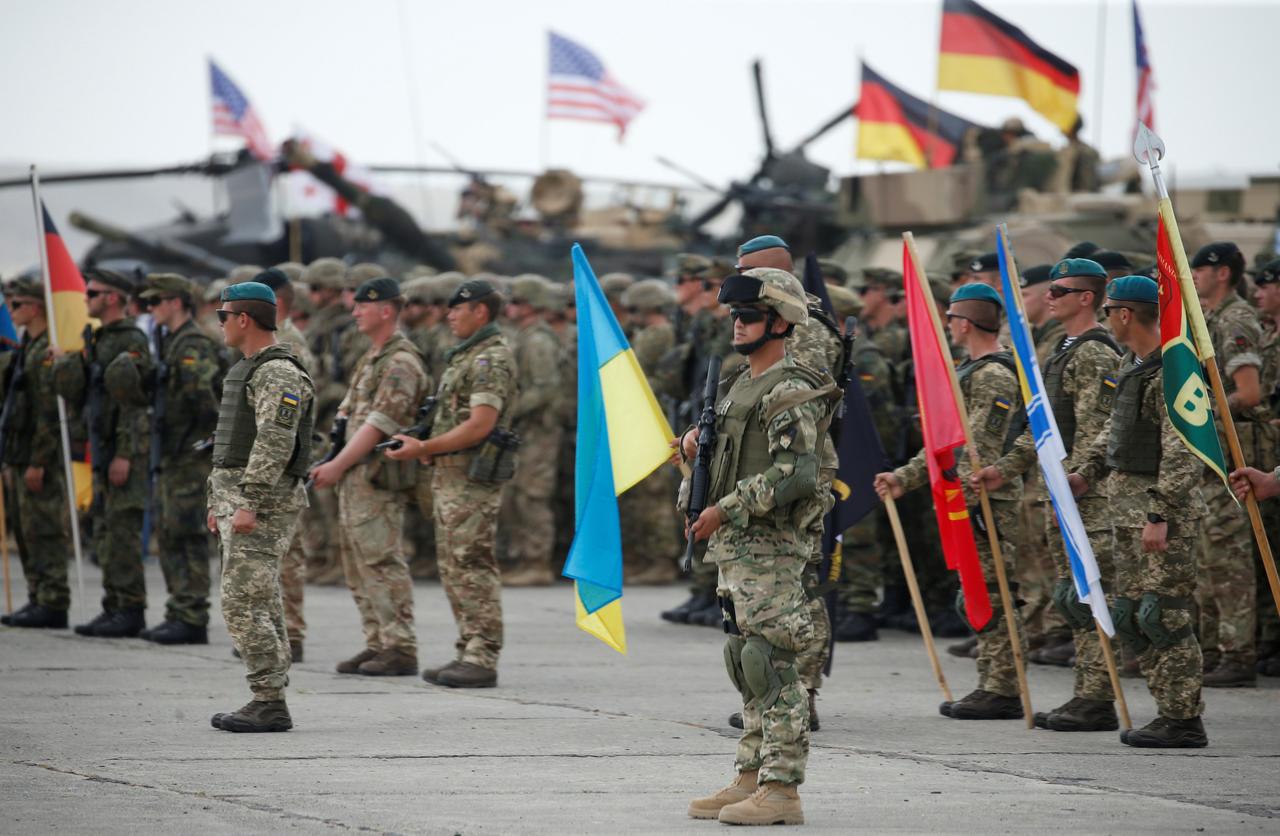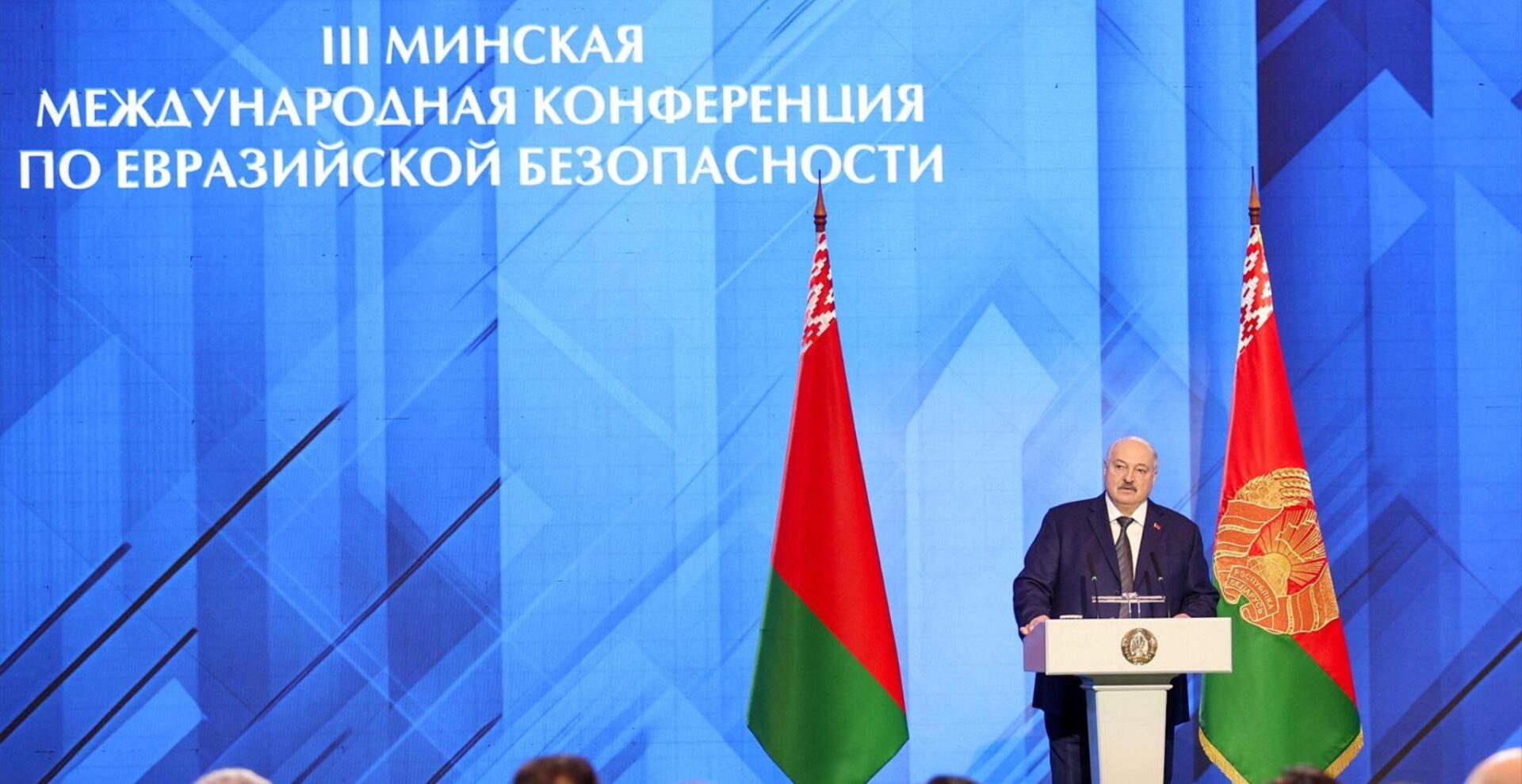
Ukraine-NATO: Politicians Struggle, While Military Acts
Ukraine-NATO: Politicians Struggle, While Military Acts
Relations between Ukraine and the North Atlantic Treaty Organization (NATO) have long been complicated, sometimes even uncertain. From hopes for membership after the Bucharest Summit in April 2008, to effectively declaring Ukraine neutral during Viktor Yanukovych’s presidency; from the reactivation of a Euro-Atlantic integration course following Russian aggression in early 2014, to new doubts after Volodymyr Zelensky’s victory in the last presidential election.
For the last several years, there was at least one important sticking point on Ukraine’s path toward membership in the organization—the position of Hungary, whose government had officially blocked important progress at the NATO-Ukraine Commission (see EDM, June 3, 4, 8). A new round in this struggle occurred late last month, when Ukrainian Foreign Minister Dmytro Kuleba rushed to Budapest by car (due to continued quarantine limitations on air and rail travel) to meet with his Hungarian counterpart, Péter Szijjártó (Radiosvoboda.org, May 29). After their talk, both politicians expressed hope for new steps forward in resolving the impasse. But at the same time, Szijjártó underlined that Budapest will only allow Kyiv to receive a Membership Action Plan (MAP) for joining the Alliance after Ukraine resolves the language and education issues facing its Hungarian minority residing in Transcarpathia. A few days later, the Ukrainian Ministry of Development of Communities and Territories announced the formation of a new district within the Transcarpathian region, which will contain most of the resident Hungarian minority (Decentralization.gov.ua, June 5). Some Ukrainian observers saw that step as a possible concession to Hungarian demands (Radiosvoboda.org, June 9). But later, on his Facebook page, Kuleba called that theory “fake” and reminded that the Ukrainian foreign ministry has several “red lines” its diplomats are not allowed to cross: one of those lines is any requirement to change the law on education. He also insisted that no foreign state has the right to dictate to Ukraine how it should organize its internal administrative structures (Facebook.com, June 10).
Meanwhile, other political obstacles to NATO accession are internal to Ukraine. For example, after just three months in office, Ukrainian Deputy Prime Minister for European and Euro-Atlantic Integration Vadym Pristayko (who had previously headed Ukraine’s Mission to NATO) was fired. He was replaced by Olha Stefanishyna, a member of President’s Zelenskyy’s Servant of the People party (Evropeyska Pravda, June 4). Such frequent reshuffles involving strategically important top cabinet positions can hardly benefit the process of Kyiv’s integration with Europe and the Transatlantic community.
A further restraint on progress involves Ukraine’s Annual National Program (ANP). The current ANP was signed by President Zelenskyy only on May 26 (President.gov.ua, May 26). But according to Ivanna Klympush-Tsintsadze (currently a member of the Ukraine-NATO Inter-Parliamentary Council and earlier a deputy prime minister for European and Euro-Atlantic integration), this document was prepared much earlier, on October 2019, and yet remained unsigned until late May 2020. She sees that as a negative sign, which sends a very clear signal of skepticism or at least hesitation to Ukraine’s international partners (Zn.ua, June 5). Moreover, Alliance experts are scheduled to travel to Kyiv to check on the implementation of the ANP already in September, which gives the Ukrainian government too little time to implement any concrete actions.
Despite all these problems, on June 12, the North Atlantic Council recognized Ukraine as an Enhanced Opportunities Partner (EOP)—the result of the long cooperation between Ukraine and the Alliance, in particular in operations in Afghanistan and Kosovo, as well as Kyiv’s contribution to the NATO Response Force and NATO exercises. Additionally, allies underlined Ukraine’s commitment to Euro-Atlantic security (Nato.int, June 12). Hints that this recognition was forthcoming emerged sporadically over the past several weeks. At the start of June, Minister Kuleba, following his meeting with German Defense Minister Annegret Kramp-Karrenbauer in Berlin, said that he received the host country’s support for Ukraine obtaining EOP status (Ukrinform, June 2). The same support was expressed days earlier by French Ambassador to Kyiv Etienne de Poncins, during his meeting with Ukrainian Defense Minister Andriy Taran (Mil.gov.ua, May 28).
Nonetheless, even with EOP status, Ukraine still has a long way to go to becoming a full Alliance member. A recent study produced by the Ukrainian Strategic Initiative (USI) think tank emphasized another important aspect—a lack of important steps taken by the government. According to their analysis of last year’s (2019) ANP, several strategic points had remained unfulfilled, including receiving a MAP, adopting a new law on the Security Service of Ukraine (a vital reform of this organization that would bring it in line with European standards), preparing a new law on intelligence, as well as passing a new version of the law on state procurements that would make the process (including in the defense and security sphere) more transparent and less corrupt. The draft of the latter bill awaits a second round of hearings in the Ukrainian parliament. The USI experts conclude that the slowdown in Ukraine’s path toward NATO integration stems from opposition of some individuals in the president’s close circle combined with an insufficient level of competence among the newly appointed government officials (Informnapalm, June 2). Even small practical decisions taken up by the Verkhovna Rada (parliament)—like bringing Ukrainian officer and non-commissioned officer (NCO) ranks in line with NATO standards—are regularly accompanied by political struggles and delays (Rada.gov.ua, June 4).
At the same time, the situation looks somewhat more optimistic at the military level. The Ukrainian Air Force has made a significant contribution to NATO’s fight against the COVID-19 pandemic. According to Deputy Prime Minister Stefanishyna, Ukrainian planes participated in the Alliance-supported Strategic Airlift International Solution (SALIS) program, conducting 17 missions since mid-March and airlifting over 950 tons of medical supplies in record time (Facebook.com/UA.EU.NATO, June 9). Additionally, after the first-ever Ukrainian special operations forces (SOF) unit (the 140th Separate Center of Special Forces) was certified to join the NATO Response Force, a second unit (3rd Separate Special Forces Regiment’s Special Operations Land Task Group) is presently undergoing the same certification (Tyzhden, March 13).
Many other units of all branches of the Ukrainian Armed Forces periodically participate in NATO-led exercises. And as confirmed by the United States’ permanent representative to the Alliance, Ambassador Kay Bailey Hutchison, in her recent video briefing on June 16, EOP status will further boost Ukraine’s interoperability, training and exercises with NATO. Ukraine is “very much important to NATO,” she declared and expressed hope that the country will eventually become a full treaty ally inside the Euro-Atlantic political-military bloc (Tyzhden, June 16).


